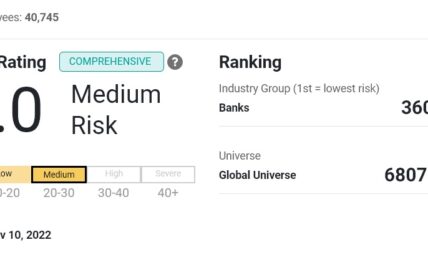Automotive manufacturer BMW Group announced an agreement with Swedish startup H2 Green Steel (H2GS), to source steel produced with the use of fossil fuels, beginning in 2025. According to BMW, H2GS’s steel production generates up to 95% reductions in CO2 emissions compared to conventional methods, and the agreement will support the company’s efforts to significantly cut its supply chain emissions.
Founded in 2020, H2GS aims to build the world’s first large-scale fossil-free steel plant in northern Sweden, with the project including a giga-scale green hydrogen plant as an integrated part of the steel production facility. The company employs hydrogen produced using green power to remove the oxygen from iron oxide, avoiding 95% of the CO2 emissions normally produced. Using electricity from 100% renewable sources for the energy requirements generated in the manufacturing process, H2GS aims to produce 5 million tons of fossil-free steel by 2030.
Dr. Andreas Wendt, member of the Board of Management of BMW AG responsible for Purchasing and Supplier Network, said:
“Our goal is to reduce CO2 emissions in our steel supply chain by about two million tons by 2030. Sourcing steel produced using hydrogen and green power can make a vital contribution to this.”
Steelmaking is one of the biggest emitters of CO2 globally, with total greenhouse gas emissions (GHG) from the sector accounting for 7% – 9% of direct emissions from the global use of fossil fuels. As manufacturers globally aim to decarbonize their supply chains, demand for fossil-free steel is expected to increase significantly.
In addition to the delivery of steel produced using green power, the two companies have also agreed to create a closed-loop material cycle, meaning that raw materials can be used multiple times, natural resources protected. Since it requires less energy to produce, secondary steel lowers CO2 emissions by an average of 50-80% compared to the primary material.
The new agreement follows BMW’s announcement last month of the expansion of its efforts to combat climate change with new goals to reduce vehicle emissions throughout the lifecycle, focus on the circular economy, and ramp up the use of recycled and reusable materials by 50% by 2030.
Wendt added:
“Steel is essential for producing cars and will be no less important for future vehicle generations. Innovative technologies that enable virtually carbon-free production of steel have a significant impact on our ability to reduce CO2 emissions in our steel supply chain.”
The post BMW Announces Deal to Source Fossil Free Steel for 2025 Car Models appeared first on ESG Today.



